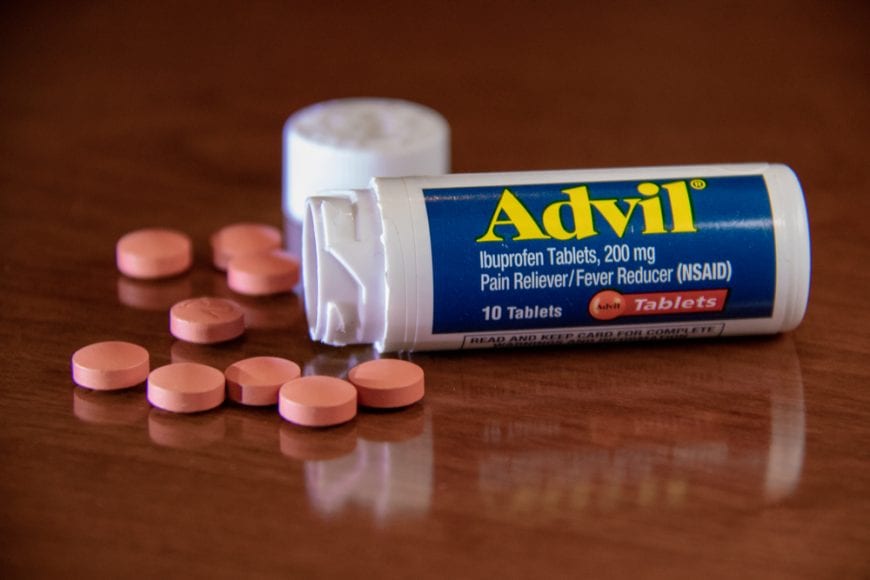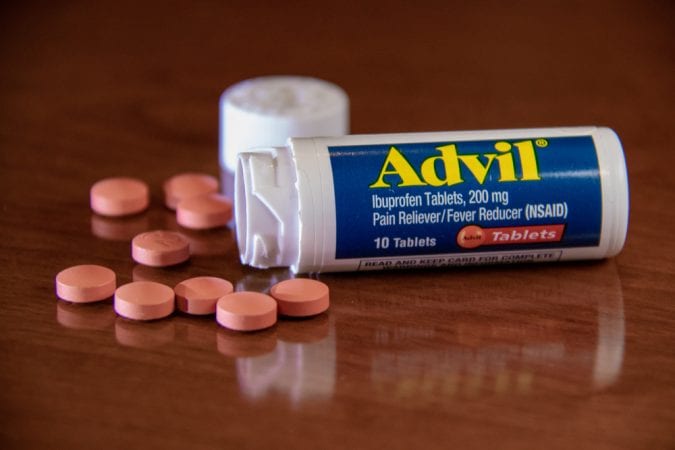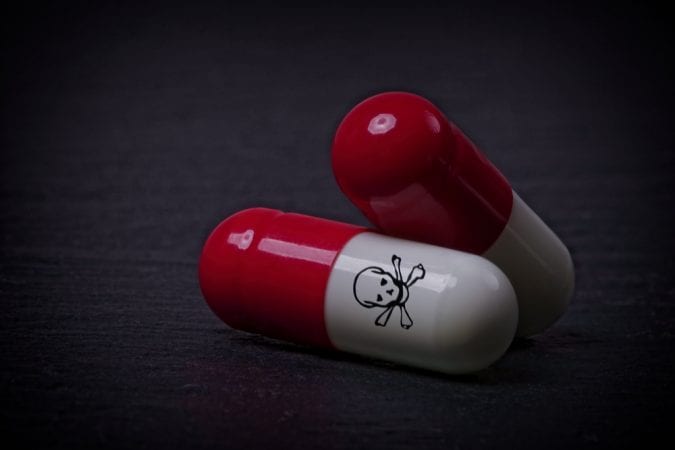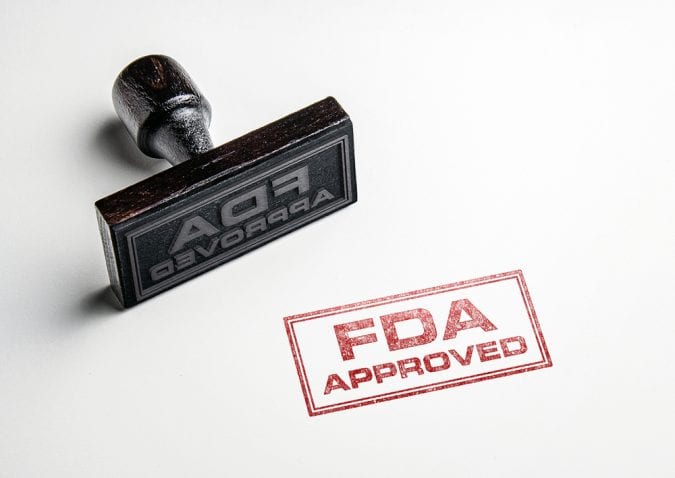
Research has shone a negative light on the long term use of Ibuprofen products, such as Advil and Motrin, due to dangerous side effects that may cause death. CBD has none of these risks, but can it measure up in the painkilling department?
Cannabis owes much of its recent rise in popularity, within the medical community, to the efficacy of these two well known cannabinoids: CBD and THC. While THC is amazing medicine, it’s CBD that edges out the competition on anti-inflammatory action (except CBG may be even better – but that’s still in the works). Cannabidiol (CBD) is proving itself as a potent medicinal compound, and safe to use across a broad spectrum of patients, perhaps safer than Ibuprofen.

Image credit: Shutterstock
Can CBD Replace Ibuprofen?
Ibuprofen is a great anti-inflammatory medicine. It has, however, come under intense scrutiny recently for the often underreported serious side effects from long-term or off-label use. These include: increased risk for heart attack, intestinal bleeding, and weaker bones. CBD, on the other hand, continues to demonstrate an extremely favorable safety profile, especially in comparison to other drugs.
To better understand whether or not CBD may actually replace ibuprofen products, it helps to understand what these NSAIDS, such as Advil and Motrin, are approved to treat.

Image credit: evrymmnt
Ibuprofen is Approved to Treat:
- Pain and inflammation from arthritis
- Pain and inflammation from physical overexertion
- Headaches and migraines
- Pain from muscles, joints, backache, toothaches, and menstrual pain
- Aches and pain related to the common cold
- Fevers
Over the counter (OTC), non-prescription painkillers generally have excellent short-term safety profiles. Time and time again, the low risk of ibuprofen for short-term relief (under 10 days) is documented. With that said, there are many situations where these medications are not advised for use, including for people with liver and kidney issues, recurrent gastrointestinal problems, and high blood pressure. Long-term use of these drugs is not recommended and may lead to serious health issues, and even death.

Image credit: Arne Beruldsen
Is CBD a Good Enough Anti-Inflammatory Painkiller?
To successfully replace Ibuprofen products, CBD must target all types of pain relating to inflammation. From the pain associated with inflammation, to headaches, to the aches related to the common cold.
According to the available research, CBD is a powerful tool to fight inflammation and its related pain. It also seems beneficial for spasticity related to multiple sclerosis and neuropathic pain. For other types of pain, most research indicates it works best when combined with THC. Full spectrum CBD products (i.e. those that use the whole plant rather than extracted cannabinoids) are the most effective due to the Entourage Effect. The higher the THC percentage, the more likely a patient is to report pain relief.

Image credit: VGstockstudio
But what about a comparison of the side effects of CBD and the side effects of Ibuprofen? It’s here where the CBD starts to take the lead. Unlike Ibuprofen, which is not recommended for long-term use, CBD is usually well tolerated over long periods of time, and in sustained high doses.
Reported side effects from CBD are rare and mild, including: tiredness, diarrhea, and changes in appetite/weight. Importantly, there are no reported cases of overdose deaths associated with CBD. Ibuprofen, on the other hand, has led to overdoses, serious health issues, and even death. It’s worth noting that the numbers are still hotly debated, as most overdoses are related to intestinal bleeding, but nonsteroidal anti-inflammatory drugs, including Ibuprofen, could be responsible for up to 16,500 deaths a year.

Image credit: Lightspruch
Cannabidiol hasn’t run into these issues. It is so well tolerated, that it recently received approval from the Food and Drug Administration for treating intractable childhood epilepsy (Epidiolex, made from cannabis extract not synthetic). On top of this, in an unprecedented move, the DEA has also reclassified CBD from a Schedule 1 banned substance to a Schedule 5 substance, which means it is medically useful with no chance of abuse. There is a caveat to that, however, because only CBD products that are FDA-approved will qualify for rescheduling. Products from naturally high-CBD strains will remain Schedule 1.

Image credit: Castleski
CBD as an Alternative to Ibuprofen (Sometimes)
It is this considerable difference in the risk profile of CBD versus Ibuprofen that makes CBD an exciting alternative. With more research, CBD may prove more beneficial for certain types of long-term and difficult to treat pain and inflammation. Also, because CBD has a low chance of severe side effects when used daily, many people are already using it to replace over the counter NSAIDS. Of course, the research is still playing catch up with the many real-world patient experience and anecdotal reports.
